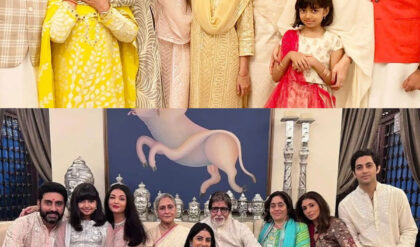India is home to 200 billionaires. Should it consider a ‘super tax’ for its ultra-rich?
Amid the growing economic disparities across India, business-friendly Modi is facing calls to increase taxes on the super-rich

When India’s Prime Minister Narendra Modi was savouring moments last week at the wedding of the son of Asia’s richest businessman Mukesh Ambani, he was likely unaware of a brewing political storm: a demand for taxing the ultra-rich.
Modi’s chief political opponent, the Indian National Congress, has launched a bid to impose a special tax on the rising number of billionaires in India as the government prepares to unveil the first federal budget of its third term on July 23.
Meanwhile, the G20 summit is also set to take place later this month in Brazil, where discussion on a proposal to increase taxes on the super-rich is expected to be on the agenda.
“All over the world, there is a growing consensus that billionaires must pay their fair share of taxes,” Congress chief spokesman Jairam Ramesh wrote on July 12 on social media platform X, formerly Twitter.
A 2 per cent tax on billionaires’ wealth was originally proposed by Brazil shortly after the country took over the rotational presidency of the G20 in December last year. Since then, it has been gaining momentum with countries such as France, Germany, Spain, Belgium and South Africa throwing their weight behind it.
On July 10, 19 former heads of state and prime ministers wrote an open letter to the G20 leaders urging them to adopt a global resolution to tax the ultra-rich.

Billionaire Mukesh Ambani (centre) with his family members at the wedding of his son Anant Ambani and Radhika Merchant at Jio World Convention Centre in Mumbai, India, on July 12. Photo: AP
Meanwhile, in India, increasing taxes on the super-rich has been one of the key poll promises of the opposition Congress, which failed to dislodge Modi in the national election earlier this year.
Congress has continuously targeted Modi for his business-friendly image, claiming the government failed to implement measures to alleviate the plight of the poor.
“Narendra Modi is not a prime minister, he is a king. A ‘puppet king’ whose strings are in the hands of ‘tempo billionaires’,” claimed Rahul Gandhi, leader of the opposition in the parliament’s lower house (Lok Sabha).
Though personally invited to the Ambani family’s lavish wedding ceremony on July 12, Gandhi chose not to attend.
More billionaires and inequality
According to Forbes’ latest list released earlier this month, India is home to 200 billionaires, with Ambani, who helms the Reliance conglomerate, topping the list. However, another agency, the Hurun Research Institute, said in a study in March this year that there were 271 billionaires in India. It added that Mumbai had become Asia’s billionaire capital, dethroning Beijing and becoming the hotspot for 92 ultra-high-net-worth individuals.
Contrastingly, multiple reports have pointed out there is a growing inequality across the country, with wealth increasingly amassed by the most affluent class while those in the lowest sections are becoming poorer.
The global monitoring agency World Inequality Database recently found that economic disparity levels in the current “Billionaire Raj” are much worse than during the British colonial period.

Dharavi, one of Asia’s largest slums, in Mumbai, India, in May 2023. Dharavi is about three miles away from the wedding venue of Anant Ambani, the youngest son of Asia’s richest man, Mukesh Ambani. Photo: AP
Lucas Chancel, a visiting associate professor at Harvard Kennedy School and one of the authors of the report, said that taxing billionaire wealth in India was both “desirable and feasible”.
“It doesn’t make much sense that the tax rate of billionaires is lower than that of all other individuals in society, as it is today,” Chancel told This Week in Asia.
The authors of the report argued that a 2 per cent “super tax” on India’s 167 wealthiest families in 2022-23 would yield 0.5 per cent of the country’s national income in revenues, allowing the exchequer to redistribute the wealth towards education, healthcare, and alleviation of poverty.
“Let’s remember the loopholes in any tax system because we allow them to be there. They are not a law of nature and they can be fixed with political will. If this administration doesn’t have this will, then it’ll be up to the INC [Congress] to push in this direction. In any case, based on surveys all across the world, we see that taxing billionaire wealth is massively supported by the majority of the electorate in most countries,” Chancel said.
The paper calls for raising tax revenues on the ultra-rich while leaving 99.96 per cent of the adult population unaffected.
In India, the economic disparities have become even more pronounced during the Covid-19 pandemic, where the ultra-rich managed to diversify their businesses or reap profits from the catastrophe.
In 2013, a year before Modi came to power, there were 55 billionaires in India.

The administration of Indian Prime Minister Narendra Modi has remained tight-lipped about its position on its taxation policy when it comes to imposing a wealth-specific tax on the richest. Photo: EPA-EFE
The Modi administration remains tight-lipped about its position on its taxation policy when it comes to imposing a wealth-specific tax on the richest.
There are also concerns that such billionaire-focused taxes would force them to leave the country and set up their businesses in tax-friendly places like Dubai.
Analysts say India requires more efforts to tackle worsening economic inequalities but express little faith in the ruling government.
“India needs more than a billionaire tax. Property taxes are one viable option, where evasion and avoidance issues can be overcome. Property taxes are woefully underused in India. In 2017-18, India raised only 0.1 per cent of GDP through property taxes, down from 0.2 per cent,” said Dr Reetika Khera, a professor of economics at the Indian Institute of Technology Delhi.
The developmental economist added: “For any dramatic reforms on redistributive taxes, we first need to see some acknowledgement of, and unease with, the staggering level of inequality. Instead, we saw India’s power elite from all walks of life [not just the government] falling over themselves to get selfies at a wedding with the most vulgar display of wealth.”





